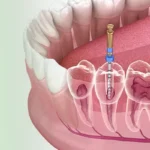Good oral health is an essential component of overall health and well-being. Regular dental checkups aren’t just for addressing cavities, they play a vital role in preventing long-term health issues and maintaining your family’s quality of life. Learn why prioritizing family dental care is one of the best decisions you can make.
The Importance of Family Dentistry
Family dentistry goes beyond routine cleanings. It focuses on building long-term relationships with patients while addressing the diverse dental needs of individuals of all ages. From toddlers losing their first teeth to grandparents preserving theirs. Here’s why family dentistry matters:
- Preventive Care: Regular dental visits identify and address problems before they escalate. Cleanings, fluoride treatments, and sealants all help protect your family’s teeth from decay and disease.
- Comprehensive Treatment: Family dentists provide a wide range of services, from children’s orthodontics to restorative treatments for aging teeth.
- Personalized History: By seeing the same dentist, your family builds a consistent dental history, which aids in accurate diagnoses and tailored treatments.
Health Benefits of Regular Dental Checkups
Scheduled checkups allow dentists to identify potential problems like cavities, gum disease, or oral infections in their early stages. Catching these issues early reduces the risk of painful procedures and improves treatment outcomes. Your mouth is a gateway to your body. Poor oral health has been linked to systemic issues such as heart disease, diabetes, and respiratory infections. Regular dental exams help mitigate these risks by identifying issues like inflammation or bacterial buildup.
Routine visits to the dentist ensure your child’s teeth are developing correctly. Early detection of problems like bite alignment or overcrowding allows for timely intervention with braces or retainers. Professional cleanings remove stubborn tartar and stains that brushing and flossing at home simply can’t. This helps your family maintain healthy, confident smiles.
Addressing Common Concerns about Dental Checkups
Some families and individuals may have reservations about dental care. These concerns can be navigated with ease and confidence. There are many advancements and conveniences in dentistry that have made is easier and more accessible for people:
Fear of Pain During Procedures: Modern dental technology prioritizes patient comfort. Local anesthetics, sedation options, and minimally invasive techniques have made painful procedures a thing of the past.
Worries About the Cost of Care: Preventing health issues with routine checkups is far more cost-effective than treatments for advanced dental problems. Many dental offices offer flexible payment plans and accept insurance for added convenience.
Anxiety About Diagnoses or Treatment Plans: It’s natural to feel apprehensive about what a checkup might reveal. However, dentists aim to provide reassuring and realistic treatment plans that are tailored to your family’s needs. Trust that early detection is always better for overall health.
Scheduling Conflicts: Busy schedules make dental appointments tricky, but many dental offices offer extended hours and weekend availability. Prioritize these visits as part of your family’s wellness routine.
Concerns About Cleanliness and Safety: Most dental offices follow rigorous sterilization protocols and maintain high hygiene standards, ensuring a safe and clean environment for patients.
Make Regular Checkups a Habit
Book appointments for the entire family at the beginning of the year to avoid last-minute conflicts. Many family dental practices allow online scheduling for added convenience. If parents prioritize their own dental health, children are more likely to follow suit. Make dental checkups a non-negotiable family priority.
The Bottom Line
Regular dental checkups aren’t just about keeping teeth clean, they’re about safeguarding your family’s overall health. Having a trusted family dentist, you can ensure that everyone in your household benefits from preventive care, early intervention, and comprehensive treatment options.







